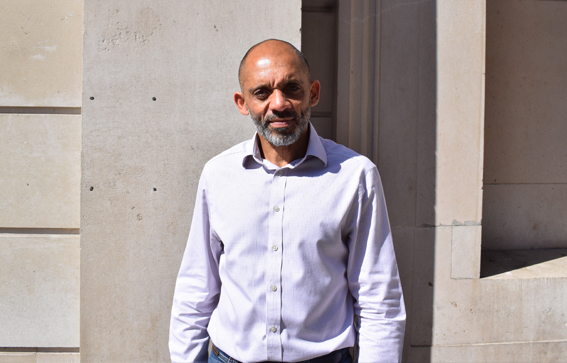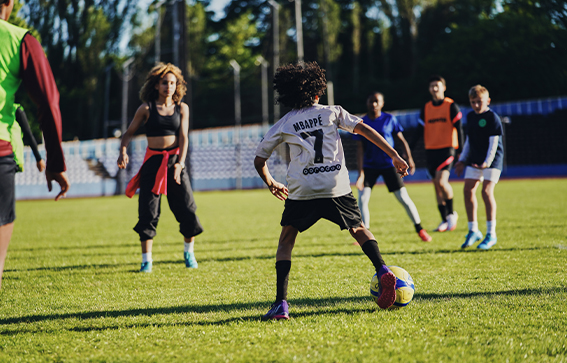The recent case of Thomas Partey has once again exposed how football handles allegations of sexual assault, and quite frankly, it has been unacceptable.
Has football responded loudly and clearly to this case, or the several other high-profile cases before it? Has it responded at all? To both questions the answer is no and it leads to obvious questions about whether safeguarding women and girls is a genuine priority in the sport. The silence tells the story.
The Partey case is far from unique. High-profile allegations of sexual assault involving professional footballers span decades. In each instance, clubs have responded differently, laying bare the absence of any consistent, sport-wide frameworks for dealing with such serious claims.
Unlike other industries, football often lacks basic safeguarding protocols. There is no standard approach for how clubs should respond when players are under investigation for serious offences, a gap that the Culture Secretary, Lisa Nandy, has now publicly called on football to address.
The governing bodies remain conspicuously silent, leaving clubs to make ad hoc decisions that often seem to be guided more by public relations and performance on the pitch than by accountability or duty of care to fans and staff.
Some might argue that players are innocent until proven guilty, but the consequences of these decisions go far beyond legal outcomes. This is not just about guilt or innocence, it’s about the broader message football is sending in how it regards women.
At Kick It Out, we regularly hear reports about sexually charged chants like “she said no” echoing from the stands. Imagine being a sexual assault survivor or a parent, sitting next to your daughter, having to explain what that means.
While clubs stay silent, women supporters are left asking whether their clubs truly represent them. Behind the scenes, women potentially working in media, medicine, and operations are expected to carry on professionally – alongside men facing rape allegations. How would that make them feel?
When it comes to safeguarding, football prioritises ability over integrity, and this message is set against a harsh reality.
A 2022 report by City St George’s, University of London, concluded that in England and Wales, more than 99% of rapes reported to police do not end in conviction. Violence against women and girls affects over 1 in 12 women annually and accounts for roughly 20% of all police-recorded crime. Football’s impact on society also extends further - domestic abuse reports rise by 38% on days when England lose a football match.
At Kick It Out, we’ve spoken about football’s lack of care for women and girls before and the prevalence of sexist chants. Our recent research found that nearly half of women and non-binary fans have witnessed sexist behaviour at a game. One in four told us they have felt unsafe in a football environment.
In Partey’s case, not only was he allowed to continue playing, he was praised, celebrated and even reportedly in line for a contract extension. When it comes to minor disciplinary issues, clubs regularly move swiftly. But when the issue involves violence against women, there is a different approach. In most other workplaces, an employee facing such serious allegations would be suspended on a precautionary basis. Why should football be exempt?
We need change and we need it now. There are practical, reasonable steps that clubs and football bodies can take and as we have seen this week, fans are already calling for them.
A ‘stand down’ policy when a player is under investigation or charged with a violent or sexual offence wouldn’t determine guilt, it’s a basic safeguarding measure. This is what would happen in any responsible workplace. In Partey’s case, like many others, the allegations were widely known publicly long before any charge. Yet football had no mechanism to act - something women’s supporter groups have long been calling for.
We also need a unified, sport-wide safeguarding framework led by the football authorities, so clubs are no longer left to make inconsistent, opaque decisions on their own. There must be clear guidance on when to pause promotional activity for players under investigation. We cannot keep promoting and celebrating players accused of serious crimes just because they can play football well.
Clubs should be held accountable for their inaction and so should the leagues and governing bodies who have allowed this culture to fester.
The method in which concerns are reported also matters. A streamlined safeguarding and reporting system for staff and supporters is essential, so that issues are heard and handled with care and consistency.
These are not radical proposals. Even the Government now acknowledges that change is overdue. The question is no longer whether football should act, it’s: why it hasn’t it acted already?
What football is telling us - through its silence, its inconsistency, and its protection of talent over people - is exactly what it values. And it’s rarely the victim.


